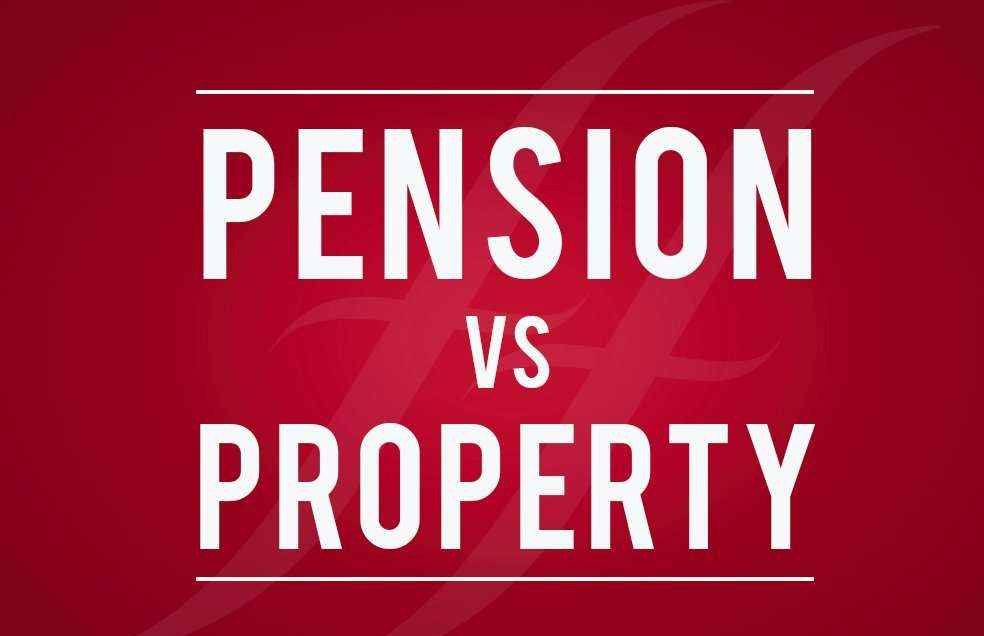The property vs pension debate often surfaces when individuals contemplate their investment plans for retirement.
Maximizing their income naturally becomes a top priority as people approach their later years.
However, deciding between allocating funds towards a pension or engaging in property investment can be a challenging decision.
Both options offer robust methods of securing long-term financial security, accompanied by advantages and risks that warrant careful consideration.
So, if you’re looking to research the best investment for retirement, then kick up your feet; and tuck into the following guide covering the pros and cons of UK Property vs Pension!
Property
Investing in property has long been a popular choice for individuals seeking to save and generate wealth over the long run.
With this strategy, an investor purchases a property and benefits from rental income and capital growth.
Capital growth, also known as capital appreciation, is one of the most appealing aspects of real estate investment.
Since property is a physical asset, its value tends to increase over time.
This becomes particularly significant when considering the future, as a property purchased today can potentially be sold at a significantly higher price after 20 years or more.
Examining the UK market specifically, the past two decades have witnessed impressive house price growth, with specific regions and cities experiencing rises of over 300%.
Naturally, the potential for substantial returns is one of the primary reasons many individuals opt for property investment.
Additionally, in addition to capital appreciation, rental income provides regular cash flow, enabling individuals to benefit in the present while saving for the future. Comparatively, property investment may be viewed as a lower-risk option in light of the numerous scandals surrounding certain pension schemes.
However, deciding between the two options is not a straightforward task.
Like any investment, real estate carries its fair share of risks, necessitating a thorough understanding before diving in.
Pros of Property Investment:
- Tangible Asset – Property is a physical asset that can be held onto for as long as desired.
- Consistent Rental Returns – Rental income can serve as a monthly income source or contribute to savings.
- High Demand – Property is in high demand, with insufficient supply, leading to regular tenant interest and potential house price growth.
- Capital Appreciation – Substantial capital appreciation can be achieved if the market significantly appreciates in value by the time of selling.
Cons of Property Investment:
- Additional Costs – Additional expenses such as taxes, insurance, maintenance, and repairs must be considered after the initial purchase and, depending on your budget, can be quite costly.
- Potential Value Drops – If the property is located in an unfavourable area, it may experience significant drops in value, negatively impacting the investment.
- Lack of Flexibility – Property investment requires a substantial upfront investment, making it less flexible than a retirement fund. It demands a larger budget to get started.
Pension
Investing in a pension is another well-established method of securing a retirement fund.
In the UK, there are three main types of pensions: state pension, workplace pension, and personal pension.
The state pension is provided by the government to eligible citizens aged 65 and above, with the amount depending on their National Insurance record.
On the other hand, workplace pensions require employers to enrol their employees in a pension scheme, with contributions from both parties. Defined contribution schemes are prevalent, accumulating funds throughout one’s working life and providing guaranteed income based on salary.
Personal pensions, available to self-employed individuals, also operate as defined contribution schemes, with the significant difference being the absence of employer contributions.
Self-invested personal pensions (SIPPs) provide the option to choose investment funds, albeit with varying risk levels.
Pros of Pensions:
- Variety of Schemes – Pensions offer a range of options, providing more choices than other strategies.
- Employer Contributions – Workplace pensions often include contributions from employers, supplementing personal savings.
- Tax Efficiency – Pensions are highly tax-efficient, allowing participants to benefit from pension tax relief.
- Protection Against Losses – Depending on the risk level chosen, the likelihood of ending up with less money than initially invested is low.
Cons of Pensions:
- Limited Growth Potential – Depending on the chosen pension scheme’s risk level and contributions, the growth may not be sufficient for a financially comfortable retirement.
- Government Rule Changes –The UK government can alter pension regulations at any given point, potentially affecting the rules governing an individual’s pension.
- Restricted Access – Unlike property investment, pension funds are essentially locked away until reaching a specific age.
Conclusion – The Best Option?
When it comes to personal finances, making well-informed decisions is crucial.
Unfortunately, there is no definitive answer regarding the best strategy for securing a perfect retirement fund.
The best route will depend on individual circumstances, and each method offers its own set of pros and cons.
To make the most of available opportunities, comprehensive research, evaluation, and analysis of every aspect are essential before reaching a final decision.
This due diligence can be the deciding factor between securing a prosperous financial future or facing potential losses.






